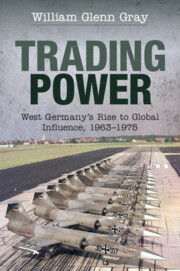Germany’s 2022 Zeitenwende (watershed) has been widely interpreted as a break with Berlin’s decades-long attempts to offer security ‘with rather than against Russia’. In the 1970s, West Germany’s social democrat-led government had embarked on Ostpolitik (Eastern policy) as a way of normalising relations with the German Democratic Republic (GDR) and other Soviet satellites by fostering closer economic ties with Moscow. This policy was extended by subsequent governments and even endured, though in new form, after the fall of the Berlin wall. Ostpolitik is now commonly seen to have culminated in a Kremlin-friendly political landscape and an economy dependent on Russian gas. More than two years after Zeitenwende, the jury is still out as to whether Ostpolitik has been dismantled or simply remains on hold. This article shows that although German politics has experienced a seismic shift since the invasion, forces of continuity remain in operation. Ostpolitik was always in part the symptom of a desire to do realpolitik in Europe. This urge is unlikely to disappear.
